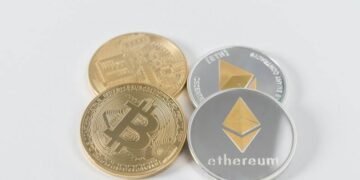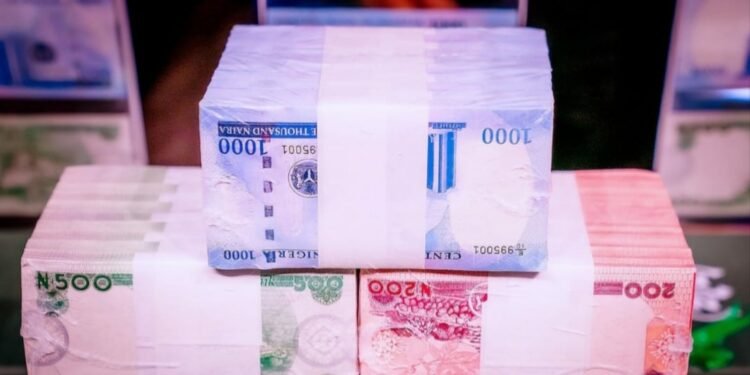(Greenwich Merchant Bank): Last week the Central Bank of Nigeria raised its policy rate by 0.25% to 18.75% and a weak T-bill auction saw both T-bill and bond rates jump. Risk-free Naira returns are well below the rate of inflation at 22.79% but is there hope that things will change?
The administration of President Boal Ahmed Tinubu has yet to announce an overall policy on interest rates. We will watch this space closely. See page2 for a comparison with other countries and our explanation.
FX
Last week, the exchange rate at the Investors and Exporters Window (I&E Window) gained 0.27% to close at N775.76/US$1. Elsewhere, the foreign exchange (FX) reserves of the Central Bank of Nigeria (CBN) slipped by 0.05% to US$33.95bn.
Over the medium term, we anticipate that the reforms in the foreign currency market will lead to improvements in FX liquidity conditions though for now it appears that there is a significant backlog of demand for US dollars to be processed.
BONDS & T-BILLS
Last week, the secondary market for T-bills was bearish with average yields increasing by 278bps to 7.12% pa. Average yields along the T-bill curve rose: at the short end (171bps to 4.10% ); mid-end (218bps to 5.47%); and long end (325bps to 8.42%). Investors’ desire for higher yields in Wednesday’s Primary Market Auction (PMA) significantly affected yields.
The secondary market for FGN bonds was also bearish, the average yield increasing by 406bps to 13.14%. Average yields along FGN bond yield curve rose: at the short end (73bps to 11.01% ); mid-end (19bps to 13.24%); and long end (38bps to 14.63%).
At the T-bill primary auction, the CBN allotted N264.33bn (US$340.74m) worth of bills.
Demand was strong but lower relative to the last auction. The auction recorded a total subscription of N398.17bn (N691.86bn at the last auction), implying a bid-to-cover ratio of 1.51x (vs 4.88x at the last auction).
Stop rates increased on the 91-day bill (+314bps to 6.00%), the 182-day bill (+450bps to 8.00%), and the 364-day bill (+621bps to 12.15%, implying an annual yield of 13.83%).
The Monetary Policy Committee (MPC) of the CBN increased the Monetary Policy Rate (MPR) by 25bps to 18.75%. The Committee also reduced the asymmetric corridor’s tolerance around the MPR to +100/-300 basis points.
This marks the asymmetric corridor’s first modification since September 2020. We continue to wait for the new administration to announce an overall strategy on interest rates.
OIL
Last week, the price of Brent closed on a positive note, advancing by 4.84% to settle at US$84.99/bbl. Brent is down 1.07% year-to-date and is trading at an average of US$79.96/bbl year-to-date, 19.30% lower than the average of US$99.09/bbl in 2022.
For most of last week, investors remained optimistic that strong demand, combined with supply reductions, would support prices. An emerging consensus that central banks, including the US Federal Reserve and the European Central Bank, are reaching the end of their policy-tightening campaigns spurred risk appetite in broader financial markets, improving the outlook for global growth and energy consumption. We maintain our view that for most of the year, prices are likely to remain above the US$75.00/bbl mark set in Nigeria’s government budget.
EQUITIES
Last week, the NGX All-Share Index closed higher, increasing by 0.08% to settle at 65,056.39 points. Its year-to-date return rose to 26.94%. Seplat Energy (+20.99%), Stanbic IBTC Holdings (+10.85%), and Fidelity Bank (+8.70%) closed positive while Cadbury Nigeria (-26.76%), Nigerian Breweries (-16.38%), and International Breweries (-12.37%) closed negative.
Performances across the NGX sub-indices were mostly negative as the NGX Consumer Goods (-2.36%) index topped the list, followed by NGX Banking (-2.21%), NGX Insurance (-1.60%) and NGX Industrial Goods (-0.31%) indices closing red. On the other hand, NGX Oil and Gas (+9.28%), NGX Pension (+0.35%) and NGX-30 (+0.10%) indices closed in the green. We remain optimistic about this market following the key fuel subsidy and foreign exchange reforms.
What does the second half of 2023 hold for fixed income Naira savers, i.e. those who choose to hold T-bills and FGN bonds rather than equities?
Over the past few months we have seen Nigerian banks become more liquid than they were before and fan increase in bank liquidity has put downward pressure on T-bill yields. That was before last week when there was a weak T-bill auction, T-bill rates moved back up and the Monetary Policy Committee (MPC) of the CBN put its official rate up 25bps to 18.75%. T-bill yields stillremain well below inflation, but its there hope for Nigerian savers?
It helps to compare the lot of Nigerian investors with the experience of fixed income savers in other countries. We have a taken a selection of African and Asian countries to make a comparison. Some of these nations are much richer than Nigeria in terms of nominal US dollar GDP per capita (e.g. South Africa and Thailand) but others are comparable (e.g. India and Kenya).
All the countries in our selection have 1-yearlocal-currency T-billrates, or outstanding 1-year local-currency government bond yields, in excess of inflation. As a result, savers can simply invest in their governments’ fixed income securities to obtain inflation-beating returns.
A feature of these countries is that, for the most part, their currencies have either depreciated moderately against the US dollar over the past year, or appreciated (in the case of Thailand). A risk-free rate in excess of the rate of inflation encourages đsavers to keep their money in the local currency rather than to exchange it for US dollars.
Other countries are not so fortunate. Pakistan’s 1-year T-bill rate is 22.99% but annual inflation rate is 29.40%. Its currency has depreciated by 21.88% against the US dollar overthe past year. Ghana has a 1-year T-billrate of 30.45% compared with an annual inflation rate of 42.50%. Its currency has depreciated by 24.51% against the US dollar overthe past year.
Where does this leave Nigeria? Nigerian fixed income savers have been without a risk-free fixed-income return above the rate of inflation since the fourth quarter of 2019, which is coming up to four years. Not surprisingly, they have taken risk assets in order to make headway away against inflation, with the NGX All-Share Index recording positive returns in 2020 (+50.03%), 2021 (+6.07%), 2022 (+19.98%) and 2023 year-to-date (+26.94%). Over the past three and a half years investors in the NGX All-Share Index would have beaten inflation, on average.
The current relationship between Nigerian risk-free returns and inflation again argues for buying risky assets such as equities. Yet, last week the CBN raised the Monetary Policy rate by 0.25% to 18.75% which suggests that it wishes to continue tackling inflation and a weak T-bill auction saw T-bill and FGN bond yields jump. Further, the new administration of President Ahmed Bolu Tinubu has only just announced its list of ministers.
The new administration, therefore, has yet to announce its over-arching policy on market interest rates. Taking risky assets may be the order of the day, but we need to keep a close eye on policy developments.
Ifunanya Ikueze is an Engineer, Safety Professional, Writer, Investor, Entrepreneur and Educator.























































